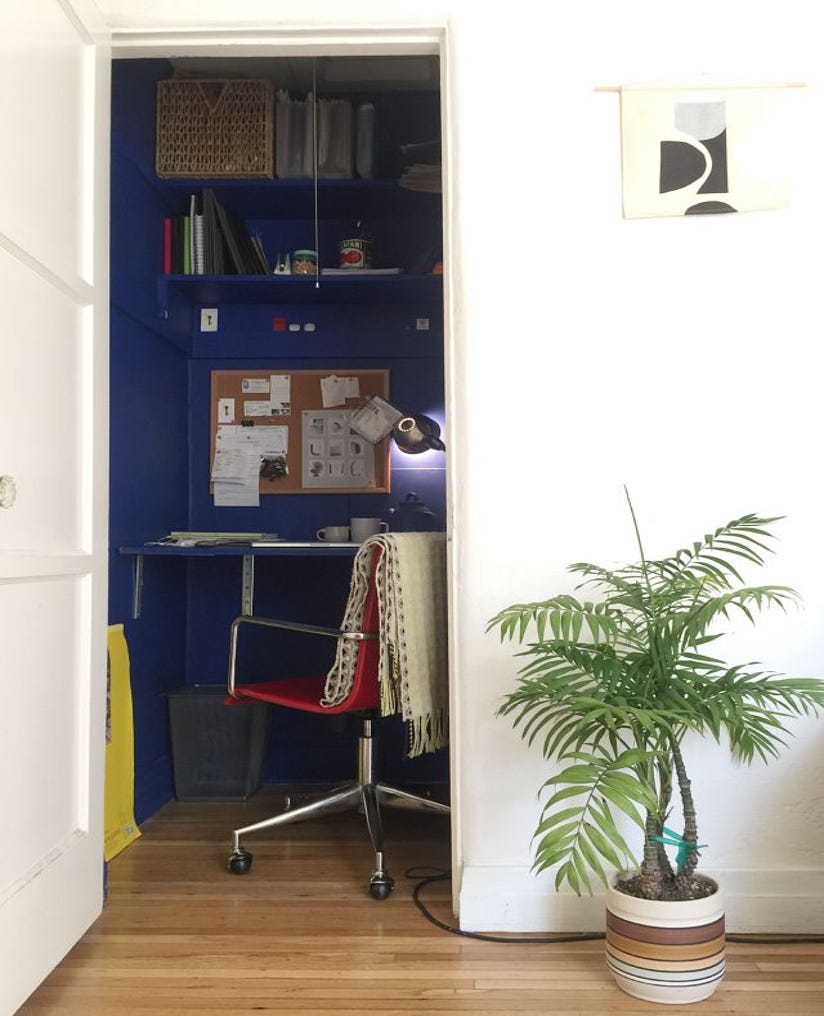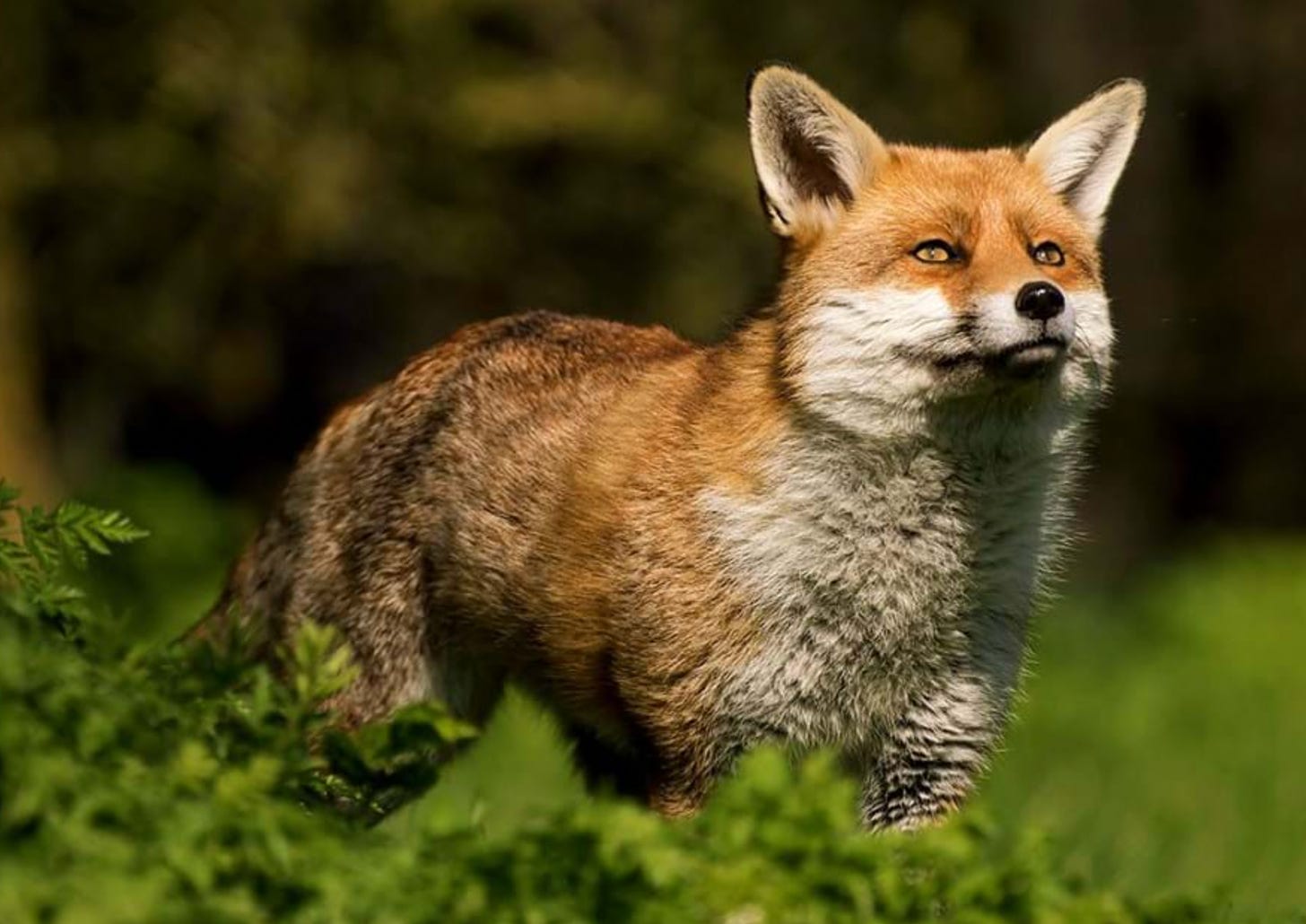I am a person who once wrote a novel in a cupboard.
For five long years, I would wake up at five thirty every morning and shut myself in this cupboard in my apartment in Los Angeles, to churn out sentences for several hours before starting the day’s paid work.
It was the only space in that tiny flat where I could have a desk and shut the door—so I took it. But the words I churned out were no good. When I finally finished writing the novel in 2020 and read it back, I realized that, surprise surprise, it read like a novel written in a cupboard: trapped. Miserable. Breathless—and not in a good way.
My writing practice is unrecognizable now. I mostly write outside, prowling along the River Dart in the early hours and dictating words into my phone. In the year after I put that first novel in a drawer—while I grieved my marriage, five years of sweat on an unpublishable novel, and the life I’d been building for a decade in the US—a character came to me. I didn’t have to shut myself away, squeeze really tight, or grind out work in misery to find her. She just sidled up alongside me one day, and I was too blasted by life to question her. She’s now the protagonist of the piece I’m working on.
Why am I sharing all this? Because this journey out of the cupboard and into the woods has been the most fulfilling and exciting journey of my life. Not just my creative life, but my whole lived experience. It’s shown me that the stories I can dream up in my silly little head are nothing—nothing—compared to the stories that are already being dreamed up, all day every day, by the vast imagination that is the world. And that goes as much for the story I’m living as for the stories I’m writing.
Which is why it breaks my fucking heart when I stumble across contests and calls for submissions of ecopoetry, ecofiction, and mission-driven storytelling, like I have in the past week.
Believe me, I understand the impulse to use story and poetry as a tool, an educational opportunity. To create narratives designed to guide us through this moment of crisis. I spent years as a climate activist, in various guises. I feel the urgency of the day in my bones. And it’s true that we don’t need yet more science. What we need now is imagination.
But these well-meaning attempts to use story as a weapon for change, moulded by human hands: they’re so misguided. They fundamentally misunderstand what story is, and the kind of imagination we so badly need now.
You can’t save the world by writing a story in a cupboard, literal or metaphorical.
Human stories date back to the earliest days of our species, when the world was still stuck in the deep freeze. In those icy days, humans would descend into caves, into the belly of the earth, and play drums or chant until the world itself morphed around them. Until they awoke into an expanded consciousness in which the laws of possibility were also expanded. In which they could hear the cave talking back to them, and feel the cosmos in their chests.
We’ve all felt this at some point. Those moments while singing or painting or writing, or walking or waking or falling in love, when our being expands, and in a flash we feel the truth that we live in an ensouled world.
Those moments aren’t flukes or freaks. They are what it means to be human. Many archaeologists now agree that the capacity to access expanded consciousness—to feel the cosmos in our chests—was what set early humans apart from Neanderthals, and led to our survival over and above them.
We started losing sight of all this hundreds of years ago, if not thousands. And now it’s so thoroughly forgotten that we think it doesn’t exist. We’ve got the shell of story, but we think it’s a tool we can mould. We think it’s something we can inject with an agenda. Append “eco” and make it useful.
That’s not what story is. It’s magic. It’s a spell. It’s so much bigger than our agendas.
Yes, we need story now. We need imagination. But first, we need to understand what story and imagination are. We need to feel the cosmos in our chests, and reclaim that transcendence and higher connection as the central human experience.
Then we might be able to find our way to the stories that need to be told in this moment.
I want to leave you today with a couple of poems about foxes—which are particularly close to my heart because the character who sidled up alongside me in the dark days of 2020, the character at the heart of my novel, is a fox.
These poems show us what it means to listen to the world without an agenda. There’s no soapboxing in them. They set out only to feel the spirit, the essence of fox, and translate that to the page.
And in doing so, they remind us that poetry is a portal. It can allow us to step into the felt sense of fox, and so to feel in our bodies what was true all along: that we are alive, and for a fleeting time, participating in a strange, fleshy, intricate, smelly, beautiful, terrifying dance of all the living beings there are.
Love,
xx Ellie



